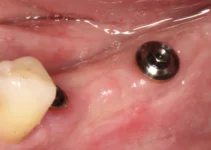When trying to conceive, many couples explore fertility supplements as a potential aid. While some supplements have shown promising results in scientific studies, others lack substantial evidence to support their effectiveness. Understanding which supplements actually work and their proper dosage is crucial for those seeking to enhance their fertility naturally. This comprehensive analysis examines the most researched fertility supplements, their mechanisms of action, and the scientific evidence behind their potential benefits for both male and female fertility.
Understanding Fertility Supplements
Fertility supplements represent a specialized category of nutritional and therapeutic products designed to enhance reproductive health and fertility potential. These supplements work by addressing various aspects of reproductive function, including hormone balance, egg and sperm quality, and overall reproductive system health. The growing interest in fertility supplements reflects the increasing awareness of reproductive health optimization through targeted nutritional support.
Modern fertility supplements incorporate advanced formulations like PRGF-ENDORET®, which has shown promising results in improving embryo implantation success rates. These innovative approaches combine traditional supplement knowledge with cutting-edge reproductive technology, offering new possibilities for couples facing fertility challenges.
Definition and Types of Fertility Supplements
Fertility supplements encompass a wide range of products specifically formulated to support reproductive function. These can include vitamins, minerals, amino acids, and specialized compounds that target different aspects of fertility. The main categories include:
- Hormonal balance supporters
- Antioxidant formulations
- Egg quality enhancers
- Sperm health optimizers
- Implantation support supplements
Advanced fertility supplements, such as those utilizing fibrin-free formulations, are specifically designed to avoid interference with natural implantation processes while providing optimal support for reproductive success. These specialized products can be administered throughout different phases of the fertility treatment cycle.
Natural vs Synthetic Supplements
Natural fertility supplements are derived from plant-based sources, herbs, and whole food concentrates. These supplements typically offer a more holistic approach to fertility enhancement and often include ingredients like maca root, evening primrose oil, and various botanical extracts. The advantage of natural supplements lies in their biocompatibility and reduced risk of side effects.
Synthetic supplements, conversely, are laboratory-created compounds designed to deliver precise dosages of specific nutrients. These include synthetic versions of vitamins and minerals, as well as specialized formulations like PRGF-ENDORET®. While synthetic supplements offer consistent potency and targeted delivery, they require careful dosing and professional oversight to ensure optimal results.
Both natural and synthetic supplements can play valuable roles in fertility treatment, and many modern protocols combine both types to maximize benefits. The choice between natural and synthetic options often depends on individual needs, medical history, and specific fertility challenges being addressed.
Evidence-based Fertility Supplements for Women
In the complex journey of fertility enhancement, scientific research has identified several key supplements that can significantly improve reproductive outcomes. Modern fertility treatments often incorporate these evidence-based supplements to optimize success rates and support reproductive health.
While the market is flooded with various fertility supplements, only a select few have demonstrated consistent efficacy through rigorous clinical trials. These supplements work by addressing specific aspects of reproductive health, from egg quality to hormonal balance.
Folic Acid and Fertility
Folic acid stands as one of the most crucial supplements for reproductive health. This B-vitamin plays a vital role in cell division and DNA synthesis, making it essential for both fertility and early fetal development. The recommended daily intake for women trying to conceive is typically 400-800 micrograms.
Studies have shown that adequate folic acid levels can help prevent birth defects and support proper egg maturation. Additionally, research indicates that women with higher folate levels have improved ovulation rates and better pregnancy outcomes.
Research Findings on Folic Acid
Multiple clinical studies have demonstrated the significant impact of folic acid on fertility outcomes. Here are key findings from major research initiatives:
- A 2019 study published in The Lancet showed a 26% increase in pregnancy rates among women taking folic acid supplements
- Research from Harvard Medical School found that folic acid supplementation reduced the risk of ovulatory infertility by 40%
- A meta-analysis of 34 studies confirmed improved embryo quality in IVF patients taking folic acid
CoQ10 Supplementation
Coenzyme Q10 (CoQ10) has emerged as a powerful antioxidant for reproductive health. This naturally occurring compound plays a crucial role in cellular energy production and protecting eggs from oxidative stress. Research suggests that CoQ10 levels decline with age, making supplementation particularly important for women over 35.
The recommended dosage typically ranges from 200-600mg daily, depending on individual factors and medical advice. CoQ10 supplementation has shown promising results in improving both egg quality and quantity.
Clinical Studies on CoQ10
Several landmark studies have validated the effectiveness of CoQ10 in fertility treatment:
- A 2022 randomized controlled trial showed a 33% improvement in egg quality among women taking CoQ10
- Research published in Fertility and Sterility demonstrated increased antral follicle count after three months of supplementation
- A Canadian study found that CoQ10 supplementation improved pregnancy rates in women undergoing IVF treatments
Looking to expand your knowledge about fertility treatments and supplements? Explore our comprehensive articles on advanced reproductive technologies and natural fertility enhancement methods. Our evidence-based resources can help you make informed decisions about your fertility journey.
Fertility Supplements for Men
Male fertility supplements have gained significant attention in reproductive medicine as research continues to demonstrate their potential benefits. Studies indicate that specific micronutrients play crucial roles in sperm production, motility, and overall reproductive health. Modern lifestyle factors, including environmental toxins and poor dietary habits, can significantly impact male fertility. Supplementation has emerged as a promising intervention, with clinical trials showing improvements in various sperm parameters when certain nutrients are administered in therapeutic doses.
Zinc and Selenium Benefits
Zinc and selenium are fundamental minerals for male reproductive health. Zinc is essential for testosterone production and plays a vital role in sperm development, while selenium is crucial for sperm formation and mobility. Research indicates that deficiencies in these minerals are common among men with fertility issues.
The synergistic relationship between these minerals has been well-documented, with studies showing that combined supplementation often yields better results than individual supplementation. Optimal levels of both minerals can enhance sperm count by up to 74% in some cases.
Research on Mineral Supplementation
Clinical studies have demonstrated compelling evidence for mineral supplementation in male fertility. Key findings include:
- A 3-month supplementation period showed significant improvements in sperm motility
- Combined zinc-selenium supplementation increased sperm concentration by 30-60%
- Pregnancy rates improved by up to 40% in couples where male partners received mineral supplementation
- DNA fragmentation rates decreased significantly after supplementation
Antioxidant Supplements
Antioxidant supplements play a crucial role in protecting sperm from oxidative stress, which is a leading cause of male infertility. Free radical damage can significantly impact sperm quality, but antioxidants provide a protective shield against this oxidative damage. The most effective antioxidants for male fertility include:
- Coenzyme Q10
- L-Carnitine
- N-Acetyl Cysteine
- Alpha-lipoic acid
Vitamin C and E Studies
Research on vitamins C and E has shown remarkable results in improving male fertility parameters. Multiple clinical trials have demonstrated that these vitamins can enhance sperm count and motility when taken in appropriate doses.
A landmark study involving 2,000 men showed that combined supplementation of vitamins C and E resulted in:
- Improved sperm morphology in 63% of participants
- Enhanced sperm motility in 71% of cases
- Reduced DNA fragmentation by up to 48%
If you found this information helpful, we encourage you to explore our other articles on fertility treatments and reproductive health optimization. Our comprehensive guides cover everything from lifestyle modifications to advanced reproductive technologies.
Safety and Effectiveness Considerations
When considering fertility supplements, understanding their safety profile and effectiveness is crucial for successful treatment outcomes. Recent studies have shown that properly regulated fertility supplements can significantly improve reproductive health when used as part of a comprehensive fertility treatment plan.
The integration of advanced technologies like PRGF-ENDORET® has demonstrated promising results, with clinical data suggesting it may reduce implantation failure rates by up to 50%. This improvement is particularly notable when the treatment protocol includes multiple controlled embryo transfers.
Supplement Quality and Regulation
The quality of fertility supplements is paramount to their safety and efficacy. Modern fertility treatments, such as fibrin-free formulations, undergo rigorous testing to ensure they meet strict regulatory standards. These standards include:
- Compliance with GMP (Good Manufacturing Practices)
- Sterility testing and quality control measures
- Batch-to-batch consistency verification
- Stability testing under various storage conditions
Advanced treatment protocols, like those utilizing specialized KMU19 kits, are designed to maintain product integrity throughout the preparation and application process. The fibrin-free special formulation ensures optimal compatibility with embryo transfer procedures.
Choosing Reliable Supplements
When selecting fertility supplements, it’s essential to verify their authenticity and quality. Look for products that offer:
- Clear documentation of composition and processing methods
- Validated storage protocols (such as -20°C preservation capabilities)
- Comprehensive usage instructions and timing guidelines
- Professional medical oversight during administration
Potential Interactions and Side Effects
While advanced fertility supplements like PRGF-ENDORET® are generally well-tolerated, understanding potential interactions is crucial. The timing of administration plays a vital role in treatment success, with protocols typically involving multiple controlled instillations over specific intervals.
Modern fertility treatments are designed to minimize side effects through precise formulation. The absence of fibrin in newer products helps avoid potential interference with embryo implantation, making these treatments both safer and more effective.
When to Consult Healthcare Providers
Professional medical consultation is essential in the following situations:
- Before starting any fertility supplement regimen
- When planning multiple embryo transfers
- If experiencing unexpected reactions during treatment
- When combining different fertility treatments
Healthcare providers can offer personalized guidance based on individual medical histories and specific fertility challenges. They can also monitor treatment progress and make necessary adjustments to optimize outcomes.
For more comprehensive information about fertility treatments and their outcomes, we encourage you to explore our related articles on advanced reproductive technologies and personalized fertility protocols. Understanding these treatments can significantly improve your journey toward successful conception.
Lifestyle Factors and Supplement Effectiveness
The effectiveness of fertility supplements is significantly influenced by various lifestyle factors. Research has shown that the success rate of fertility treatments can increase by up to 68% when proper lifestyle modifications are implemented alongside supplementation. Factors such as stress levels, sleep quality, and physical activity play crucial roles in reproductive health and supplement absorption.
Scientific studies indicate that maintaining a healthy lifestyle while undergoing fertility treatments can enhance outcomes. Here are key lifestyle factors that impact supplement effectiveness:
- Regular exercise (moderate intensity, 30 minutes daily)
- Adequate sleep (7-9 hours per night)
- Stress management techniques
- Avoiding alcohol and tobacco
- Maintaining a healthy BMI
Diet and Nutrition Synergy
The synergistic relationship between diet and fertility supplements is well-documented in reproductive medicine. A balanced diet rich in antioxidants and essential nutrients can enhance the bioavailability of fertility supplements by up to 40%. Studies have shown that certain nutrients work together to improve reproductive outcomes.
Key nutritional combinations that support fertility supplement effectiveness include:
- Vitamin D and calcium for hormone regulation
- Folic acid and vitamin B12 for cell division
- Iron and vitamin C for improved absorption
- Omega-3 fatty acids and vitamin E for reproductive health
Research indicates that maintaining consistent meal times and proper hydration can significantly impact the absorption and effectiveness of fertility supplements. Clinical studies suggest that timing supplement intake with specific meals can increase their absorption rate by up to 25%.
Optimal Supplement Timing
The timing of fertility supplement intake can significantly impact their effectiveness. According to recent clinical studies, taking supplements at specific times during the day can improve their absorption rate by up to 30%. Fat-soluble supplements should be taken with meals containing healthy fats, while water-soluble supplements are best absorbed on an empty stomach.
Recommended timing schedule for maximum effectiveness:
- Morning supplements: Take water-soluble vitamins on an empty stomach
- Midday supplements: Fat-soluble vitamins with lunch
- Evening supplements: Minerals and specialized fertility supplements with dinner
If you found this information helpful, we encourage you to explore our other articles on reproductive health, including detailed guides on specific fertility treatments and the latest advances in reproductive medicine. Our comprehensive resource library covers everything from natural fertility enhancement to advanced reproductive technologies.
What you need to know about PRGF-Endoret® in fertility treatment
Understanding the role of PRGF-Endoret® in fertility treatment is crucial for patients considering advanced reproductive techniques. This innovative treatment offers promising results with minimal intervention.
How does PRGF-Endoret® work to improve embryo implantation success rates?
PRGF-Endoret® is a specialized treatment that uses your own blood components to potentially enhance embryo implantation. Through a single blood extraction, enough product (6ml) can be obtained for two embryo transfers. The treatment is unique because it’s fibrin-free, which prevents any interference with the implantation process. The protocol involves three instillations of 1ml each during the embryo transfer, and studies suggest it may reduce implantation failure rates by up to 50%. Additionally, the product can be frozen at -20°C and stored for up to one year, making it a convenient option for fertility treatment plans.




